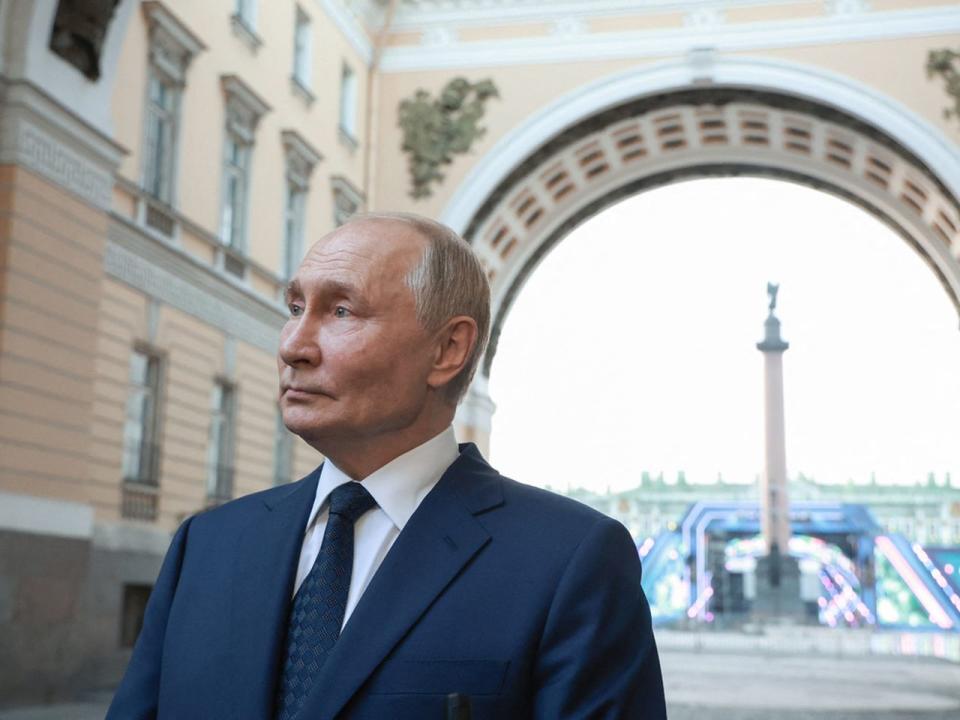Philip Cross: Russia’s moral bankruptcy means capitalism won't take root

The western world began sanctioning Russia after its illegal takeover of Crimea in 2014. After its 2022 invasion of Ukraine, western nations froze more than $300 billion of Russian financial assets and sanctioned more of its trade, leading many firms to leave Russia voluntarily. The West now needs to seize, not just freeze, Russian assets to compensate Ukraine for war damages, extend sanctions to everyday products such as food and pharmaceuticals, and compel companies and individuals to choose between operating in Russia or the west.
Leaving Russia will not be costly in the long run. Russia is not fertile ground for capitalism. The reason is endemic moral turpitude, the result of almost eight decades of communist rule. Lacking morality, Russia will remain a rogue state incapable of sustaining economic growth.
Functioning systems of capitalism and democracy require participants to have a moral compass. T.S. Eliot said the chief illusion of modern politics is the belief it can build a system so perfect that the people in it do not have to be good. Russia’s government is so far from perfect that Bill Browder, whose lawyer Sergei Magnitsky was murdered for uncovering massive government fraud, concludes “there’s no difference between the Russian government and organized crime.”
Today’s problems originated in the Soviet attempt to create a “new communist man,” who turned out to be “an amoral predator” in the words of the Financial Times’ Martin Wolf. In his book Heaven On Earth: The Rise and Fall of Socialism, American scholar Joshua Muravchik elaborated how socialism “lacks any internal code of conduct to limit what believers may do. The socialist narrative turned history into a morality play without the morality.”
The collectivism practiced for decades by the Soviet government systematically corrupted the moral standard of the individual. A free society and capitalism require individuals to self-govern themselves according to a moral standard. A collectivist regime eventually reduces the need for self-governance by individuals, leading to the totalitarianism that took hold in Russia and crippled the morality of individuals.
Russell Kirk observed in The Conservative Mind that “in morals, as in physics, the stream cannot rise higher than its source.” The headwaters of morality in Russia have been shallow for over a century. Cultivating morality requires prolonged instruction from institutions such as family, church and schools. After decades of indoctrination in amoral communist beliefs and values, a concerted effort over many years will be needed to restore Russian moral standards to levels sufficient to support capitalism and democracy.
The importance of morality to capitalism helps explain why western-style economic growth has been easier to replicate in some nations (notably in Southeast Asia) than in others. But the fundamental importance of morality to capitalism is often overlooked. “Empathy, not greed,” Rainer Zitelmann observed in In Defense of Capitalism: Debunking the Myths, “is the basis of capitalism. Empathy is the ability to recognize and understand another person’s feelings and motives. And this is the most important quality of successful entrepreneurs.”
Anna Bernasek underscored the importance of morality in her 2010 book The Economics of Integrity. Although producers are constantly tempted “to cut corners to save money or exploit the trust of others,” those with high moral standards resist that temptation and instead create wealth through efficiency and innovation. People motivated only by self-interest overlook their customers’ interests and ultimately lose business. Or, as Indian-born economist Deepak Lal puts it, “capitalism has always needed a moral underpinning to reduce the policing type of transaction costs resulting from unconstrained self-seeking.”
Social institutions ingrain morality, especially at a young age, but markets also foster the virtues needed for capitalism to function. Markets reward differences between people through trade, and trade requires respect for the rights of others and of private property. University of Chicago economist George Stigler summarized how “the struggle of men for larger incomes was good because in the process they learned independence, self-reliance, self-discipline — because, in short, they became better men.”
Classical economics always stressed the primordial importance of morality over money; as Stigler observed, “the desire for better men, rather than for larger incomes,” was one of its main themes. Until Russia grasps this fundamental point that society’s goal is better people not the lust for acquisition, it should be frozen out of the West’s economic and financial system.
Bookmark our website and support our journalism: Don’t miss the business news you need to know — add financialpost.com to your bookmarks and sign up for our newsletters here.

 Yahoo Finance
Yahoo Finance 